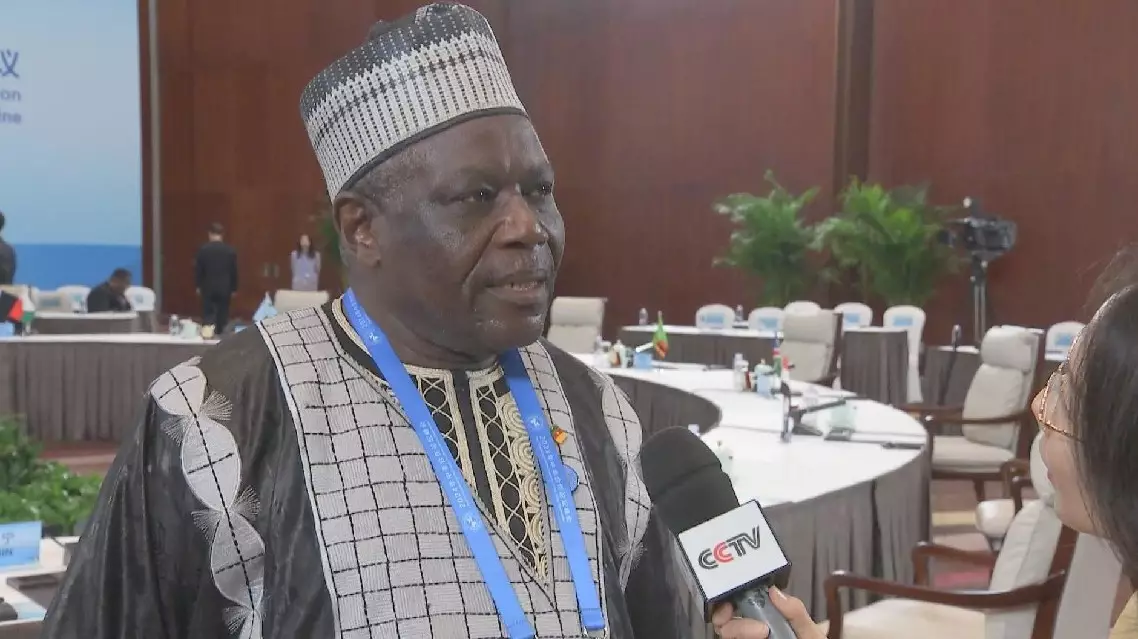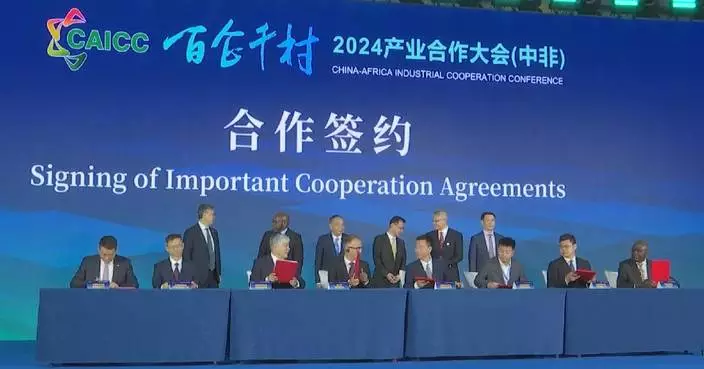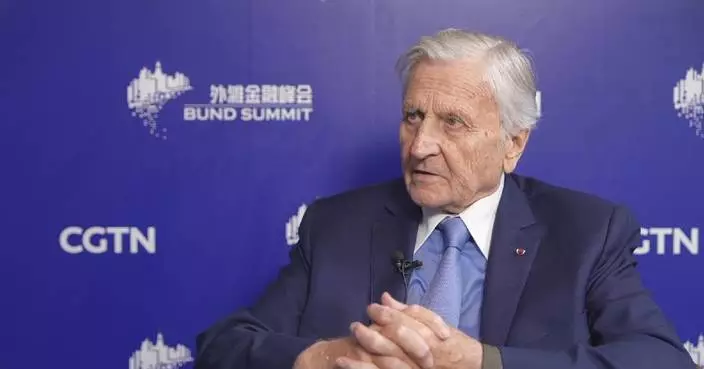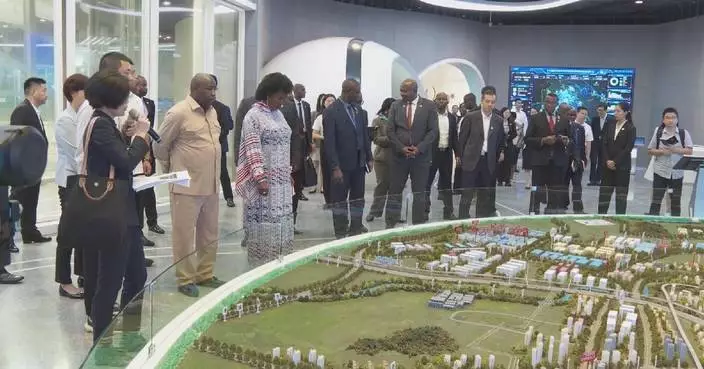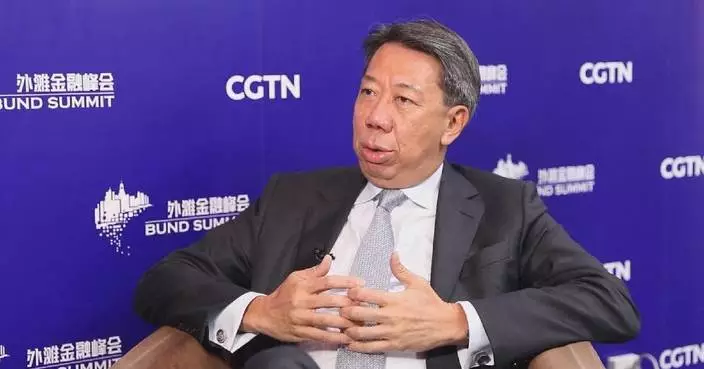China's semiconductor sector is thriving amid a shift towards application-driven development and could provide an opportunity for the country to excel in global technological competition, according to the industry's chief representative.
In an exclusive interview with China Global Television Network (CGTN), Chen Nanxiang, chairman of the China Semiconductor Industry Association, highlighted several key drivers propelling the sector's current boom amid the artificial intelligence (AI) surge.
"Firstly, China has excelled in this sector. Secondly, we are experiencing a golden era in AI development. Projections indicate that by 2030, semiconductor sales could exceed 1 trillion U.S. dollars, a truly substantial figure. Another reason lies in geopolitical competition, which places the semiconductor industry at the forefront of technological competition," said Chen.
Reflecting on the sector's growth trajectory, Chen underscored the unexpected journey of China's semiconductor prowess. Looking forward, he expressed confidence in the country's potential to achieve significant growth within the next few years.
"If I were to rewind 40 years, I would never have imagined China's semiconductor industry achieving its current status. Yet, over the past two decades, it has become evident that China was destined for this level of development. Today is not our industry's pinnacle. The best is yet to come. Like any new technology, there is a prolonged incubation period, followed by market testing, and eventually, explosive development. Although we have not yet reached that explosive growth phase in China, I believe it will happen within the next three to five years," said Chen.
Chen noted that after extensive exploration, Chinese policymakers and industry stakeholders are now fully aware of effective strategies for advancing the semiconductor industry.
"Our country has taken a circuitous route in developing integrated circuits. Initially aimed at fostering an industry, this endeavor unfortunately fell under the purview of universities, research institutions, and academies, which treated it primarily as an academic pursuit. Today, China is truly focusing on industry and products, emphasizing innovation in products, services, and business models to drive economic value. It is a stark departure from the past," said Chen.
The association chairman noted that after extensive exploration, Chinese policymakers and industry stakeholders understand effective strategies for advancing the semiconductor industry. Although the perfect model has yet to be forged, lessons from failures have provided a clearer view of what is necessary for success.
Over years of trial and error, China has learned from unsuccessful semiconductor development models. Now, stakeholders anticipate a transformative strategy to lead in semiconductor innovation.
In the realm of semiconductor development, Moore's Law, named after Intel co-founder Gordon Moore, predicts that the number of transistors on a microchip doubles every two years, driving computing power while lowering costs.
However, new challenges now necessitate a reevaluation of strategies and technologies, as one of the most crucial aspects once provided by Moore's Law no longer exists.
"Nowadays, the semiconductor industry has clearly lost one of the most crucial aspects that Moore's Law once provided, which is consensus. There is no longer consensus. For instance, Samsung's 3 nm process differs significantly from Intel's approach, each uniquely defined. In the past, during Moore's Law's prime, we could forecast technological advancements three to six years after each node. Now, however, predicting the specifics of future nodes is uncertain due to the dominance of application-driven development," Chen explained.
His insight into Samsung and Intel's manufacturing strategies underscores their distinct paths. Samsung's "3 nm" process adopts GAAFET (Gate-All-Around Field-Effect Transistor) tech, promising efficiency and performance through innovative transistor design. In contrast, Intel's "Intel 3" refines FinFET (Fin Field-Effect Transistor) technology for better performance per watt, using EUV lithography for precise circuits, expecting efficiency and performance gains.
Among the pivotal processes in semiconductor manufacturing, wafer fabrication transforms silicon wafers into integrated circuits (ICs) through complex procedures such as photolithography and etching. Concurrently, packaging involves enclosing ICs in protective housings that facilitate connections to external circuitry, ensuring functionality and durability across diverse applications.
These processes are critical for advancing semiconductor technology and meeting the increasing demand for innovative electronic devices, and according to Chen, the role of packaging has grown significantly in recent years.
"While wafer fabrication previously took precedence, today packaging plays an equally pivotal role. Now we can see that advanced AI chips and other high-value semiconductors have integrated cutting-edge fabrication and packaging technologies. It's foreseeable that packaging technology's importance may soon surpass that of wafer fabrication," the industry leader said.
Chen highlighted the technological shift as a tremendous opportunity for China, allowing it to benefit from an emerging development model.
"It's a tremendous opportunity. Previously, we followed a path of technological dependence where others surged ahead, leaving us to catch up. As we pursued, they continued progressing without pause. Suddenly, the track defined by Moore's Law vanished. With path dependence gone, we're embracing a new model, which is application-driven development. This shift positions the Chinese market and its consumers to innovate numerous semiconductor-based applications. Here lies China's opportunity," said Chen.
Concluding on a strategic note, Chen emphasized the need to overcome short-term thinking in the industry.
"We envision this industry not as a 100-meter sprint but as a marathon. Therefore, we must embody the endurance needed for marathon running and embrace a long-term perspective to truly excel in this sector. Patience and time are essential to establish a robust foundation and strengthen our capabilities. This is what China's semiconductor industry truly requires," said Chen.

China's semiconductor industry group chairman predicts "explosive growth" within five years


